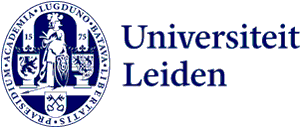
For LGBT+ migrants, dating apps are about much more than sex
When you think of migration, you probably won’t immediately think of dating apps. Yet such apps are important to many migrants, such as those who identify as lesbian, gay, bi, trans, queer or questioning (LGBT+). Researcher Andrew DJ Shield studied the role that dating apps play in the migration process, and discovered that these online cultures provide more than just a space to flirt. Migrants might find a friend, a flat or even a bicycle. In the animation below, you can see how this works.
Due to the selected cookie settings, we cannot show this video here.
Watch the video on the original website or
Three questions for the researcher
Andrew DJ Shield is Assistant Professor of History, and specialises in migration, sexuality, race and diversity in Europe since 1945. He has researched the role of dating apps in queer migration.
The combination of queer migration and dating apps doesn’t seem to be a logical choice for a history researcher. How did you know there was something interesting there?
Especially before the COVID pandemic, we tended to think of social connections forming first ‘in real life’, and then transferring online via social network platforms like Facebook. Real relationships were made offline, and anything that happened online was just fun: dating apps were for flirting, or finding casual flings, for example. But within some research fields, like queer media or diaspora studies, there has been more serious attention to how online platforms foster community, identity, or activism.
As a historian, I’ve worked with printed gay and lesbian contact advertisements, like those that people posted in the back of newspapers in the 1970s. I see today’s online dating world as a continuation of these contact ads. Especially the gay and lesbian people who bought and read niche magazines – they were trying to connect to other readers, to others in their community. When these datings ads moved online in the 1990s and early 2000s, the correspondence between LGBT+ people became more international.
That has been changed over the last few years. Now with geo-locative social media, we actually connect to those in a smaller geographic area. For people who are ‘new in town’ – migrants, refugees, international students, rural-to-urban transplants, et cetera – LGBT+ dating apps can a useful way to start a new social network: whether a date, a friend, or a possible flat-mate. In doing so, newcomers also become part of a community.
The animation ends with the sentence: ‘When politicians or journalists talk about integration, they probably don’t think about this enormous online culture. Why not?’ Should politicians and journalists pay more attention to this online culture, in your opinion?
Immigration and integration are huge debates throughout Europe today. When politicians talk about helping new migrants adapt to local cultures, they often focus on offline worlds: Let’s invest in a community center; or, there are incidents of harassment on trains. But so many interactions between migrants and locals – both positive and negative – occur online.
The question is how we can stimulate online spaces that help newcomers find local information. What difficulties are newcomers facing when trying to make new personal relationships? Especially during the COVID pandemic, it is important that migrants and refugees can build networks online. This can foster a sense of belonging to a new community.
You have finished your research on dating apps. What is your current research about?
I’m currently part of Leiden’s interdisciplinary research group Citizenship, Migration, and Global Transformations. The question I’m grappling with is: How did sexuality factor into migration before the 21st century? In the last 20 years, binational same-sex couples have had the opportunity to migrate to the Netherlands through family reunification. During these same years, it became increasingly common for refugees to seek asylum for reasons related to sexual orientation or gender identity.
But before that, sexual orientation also played a role in migration. Through oral history and archival sources, I show that sexuality factored into migrations to the Netherlands also in the 1950s-90s. But it’s not always as clear-cut as: ‘I lived in a country where I couldn’t be gay. Then I moved to Amsterdam and everything turned out amazing.’ There are often multiple reasons for migration, and sexual orientation might be just one. In the future, I hope to see more research about queer migration history.
Purple Friday
10 December is Purple Friday. Today, school pupils, students and staff at educational institutions will be wearing the colour purple as a way of showing that everyone is allowed to be themselves, irrespective of who they are or who they are in love with. Do you want to show your support too? Then wear purple or use the special Teams background. Send a photo to nieuws@leidenuniv.nl or share your photo on social media. Don’t forget to tag Leiden University.
Annetje Ottow, President of Leiden University, discussed the issue on Thursday with students and staff, including Andrew Shield, Assistant Professor of History and chair of the LGBT+ network. Annetje Ottow: ‘I found it very informative to talk with students and staff and to hear about their experiences of inclusion within Leiden University and the activities the networks are undertaking to offer support to the LHBT+ community. Leiden University wants to offer an inclusive environment where students and staff can be open about who they are, and where they can be themselves, irrespective of their gender identity, sexual orientation or other aspects of their identity. Everyone has a role to play in an inclusive environment.’

Photo: Monique Shaw
